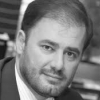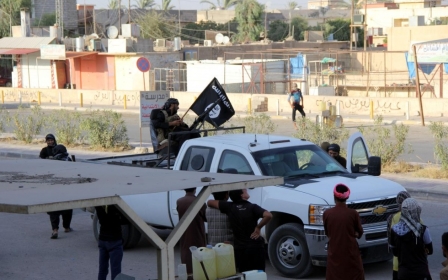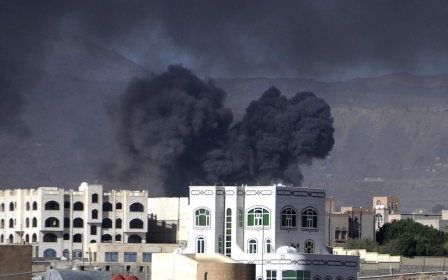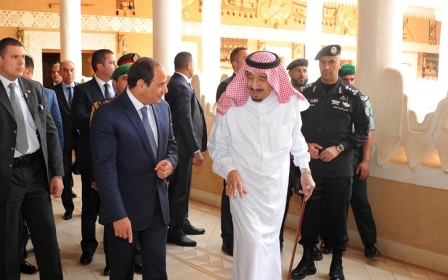Winds of change in the Middle East
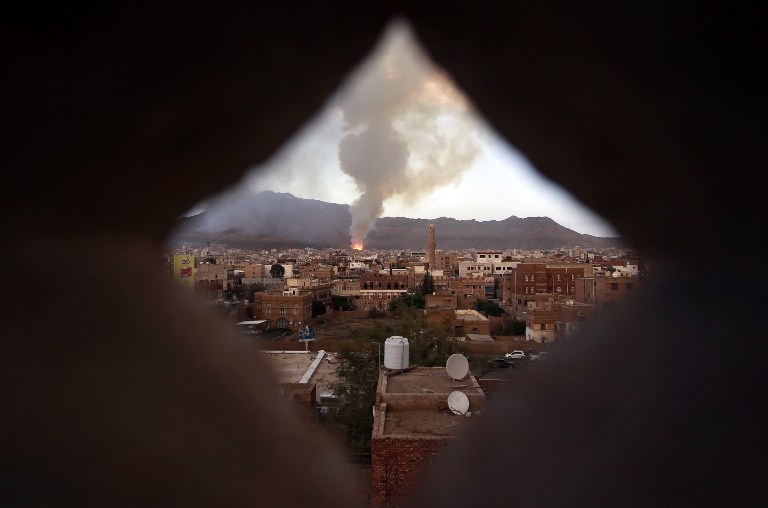
This column is based on a speech which Wadah Khanfar made at the Al Jazeera Forum on 6 May 2015.
When I resigned from the Aljazeera Network as a director general in 2011, I dedicated most of my time to an institution I founded together with a group of friends, researchers and activists in the Arab World, which we called Al Sharq Forum.
For the benefit of the many people who asked about the secret behind such a name, the word Al Sharq (the Orient) is the term coined by historians in our region toward the end of the 19th century, especially in the wake of the collapse of the Ottoman state in the aftermath of the WWI. Hence, “Sharq” was the term used by poets, intellectuals and reformists to describe this legacy that extends over the four nations that together form the Sharq region: the Arabs, the Turks, the Kurds and the Iranians.
“Sharq” today expresses a historic transitional period and requires a new project. The region is living through an essential and genuine transition. It is as if the entire previous century, since WWI, did not do much apart from pacifying the reality. However, it pacified it without solid foundations. Thus, reality has today exploded right before us with its borders, minorities, majorities, sects and trends. It is a situation seen by many as a state of total chaos and escape. However, I see it as a state of natural transition and as a state of historic development toward the point of balance, which we must seek to attain at the minimum cost of blood and the minimum amount of violence and destruction.
The region today, especially during the past few months, is living through a new condition. I think that the “Storm of Decisiveness” that has been launched against the Houthis in Yemen has created a new sensation. It is felt today that a new regional order of some sort would have to come to being or is being formed. This order, or this concord, or this coalition, that should take place, and whose time has long been due – the fact is that it has been due for a very a long time but it has been delayed just like many projects get delayed in our countries due to the pressures of the past, which always seek with all its might to arrest the future. I believe, to begin with, that we must in fact adhere to it, build on it, protect it, develop it in the direction of more regional stability and establish new foundations for a balanced Sharq.
Regional vacuum
During the past few years, we in the Arab world have preoccupied ourselves with our own selves. Our priorities have been mixed up and they have launched against their own selves punishing, storming and exploding the reality in a manner that should never have been but it has happened because when many dreaded the Arab Spring and the Arab revolutions, they sought to silence them or uproot them. The outcome was that we turned against one another and dealt a blow to our own immunity.
In recent years, the region has lived in a strategic vacuum and Arabs were the weakest party among the region’s constituents. The Iranians and the Turks have had much more stable and representative states. In contrast, the partition entities endured by the Arab world, combined with our confused priorities and attacks on ourselves, led to a serious imbalance in the region.
In the meantime, Iran has moved ahead with its expansionist project. When I say Iran, I mean Iran the state and I do not mean a sect. In the balance of conflicts and strategies states are entities with wild ambitions for hegemony and, in the pursuit of such hegemony, they would use whatever is at their disposal, including religion, sect and mysticism. But here I am highlighting the strategic dimension of interplay in the Sharq without reducing it to a religious conflict.
Iran has exploited the region’s vacuum, pushing itself into niches regrettably vacated in our fragmented Arab reality. But in doing so, Iran has gone beyond what it can bear. It has provoked within us all, whether we are Arabs or Turks or Muslims calling ourselves the “folks of Sunnah”, something new and something we hoped to avoid and that is “sensing our Sunnism” – despite the fact that I am still fully convinced that we should not view ourselves as a sect. Regardless, Iran has managed to provoke a hidden anger within us. As a result, in the absence of rational, political vision, calls for vengeance using sectarian slogans have been made.
Conflict with Iran and its regional influence will not be a one month or even a one year endeavour. It will be a long struggle in which each party will strive to make the greatest amount of gains until a moment of balance when all parties are persuaded that the interest of the region as a whole are in the interests of all parties. We will have no option but to sit down and have a dialogue.
Until that moment, I would caution against confusing a strategic conflict over interests and influence with a religious conflict. One should never confuse that whose absolute end is the uprooting of humans and the destruction of their very existence with temporary political interests and we ought to protect ourselves from such thinking because a religious conflict in this region would be a massacre. We should hold our elites and politicians responsible: should we get drawn into such a conflict, we may pay the price for centuries to come.
A stabilising coalition
While there have been calls for the creation of a Sunni coalition, I believe such an axis, formed in the Muslim world for the sole purpose of dealing with Iran, would be a strategic, historic and ideological mistake. However, a coalition founded on the principle of serving the interests of all of the region’s nations could help us attain stability.
Foremost on the coalition’s agenda would need to be the daily reality of Palestinians, particularly the siege suffered by Gazans. Although public awareness of the conflict has been raised like never before through new modes of communication, we have been unable to reap its benefits because of the state of fragmentation in the Arab world.
Restoring stability to Syria and efforts aimed at bringing down the Assad regime, responsible for causing a political and sectarian explosion in the region, should also top the coalition’s to-do list. Iraq, too, would need to be at the heart of the coalition’s mission because Iraq is the shield of the Arabian Peninsula. Without such a shield we would be exposed to Iran and to all the conflicts that may arise in the future. Afghanistan would have also have to be on the list. A stable situation inside the country must be reached that will allow all constituents to take part in a balanced political system.
The prerequisites for a coalition are more prevalent today than ever before, largely because of the partial withdrawal of the US from the interventions pursued by the Bush and previous administrations – and not just in the Middle East. Just look at the Ukraine which has become, by the way, one of the most influential issues in international relations; it is having a considerable impact on the balance of power as a result of its proximity to the EU and the old relations with both Russia and the West. So, what has the West done for the Ukraine?
Russia has been able to occupy Crimea and today, it is intervening in the eastern region by means of the Ukrainian militias. What has the EU been able to do apart from some sanctions? In fact, most of the Western countries are attempting to limit these sanctions because they are having a negative impact on their own deteriorating economies. And what comes next? Nothing!
Even supplying the Ukrainian government with arms is still highly controversial within Western circles and within the US. If the decision of the US administration is one of non-confrontation, then any party can do what it deems appropriate with full responsibility for the repercussions. Russia realises this quite well and so does Iran.
We have become accustomed in our Arab reality to view America as if it were the whole world, the outside, the international community and the political will. But today America is saying: I am no longer what you wish me to be. Therefore, we should not insist on it. To the contrary, this is a moment to seize and build a regional coalition with an intrinsic vision centred upon our own interests rather than the interests of the West.
What Camp David is really about
The leaders of the Gulf Cooperation Council who head to Camp David this week to meet with President Obama should take into consideration the fact that the US administration faces a battle over the Lausanne Agreement that will significantly shape Obama’s legacy. Following on from the letter Republican leaders sent to Iran saying the agreement would never come to fruition on their watches, Congress has passed legislation that says that “no agreement with Iran will be valid without Congress approval”.
Obama's first and foremost concern is to pass the nuclear agreement. The meeting held at Camp David – where, by the way, nothing has ever been produced that was good for Arabs - is intended for this purpose. We should be absolutely certain that Obama wants this meeting in order to obtain Arab consent, which he then can take to the Congress and say: you claimed that we were renouncing our traditional allies in the Middle East? It is not true, they have already approved Lausanne and they have no problem.
Once we are clear that the Camp David is not intended to address Arab and Gulf security needs, but rather to save Obama, we know we must go in the meeting with our own agenda. We should not offer free approval of the Iran agreement which will eventually become a reality anyway. Specifically, we should push for the US to change its current stances in Yemen, Syria and Iraq.
Some people say that the Americans are supporting us in Yemen. But this is not true. In Yemen, the Americans are using a logic that is entirely different from the one we seek. When it comes to Yemen, the Americans say that they support the Storm of Decisiveness as a matter of principle, but the truth is that they are against it. All the countries of the region know this. They know that the Americans are pressing in different directions to influence the situation inside Yemen. They want an immediate ceasefire to be followed by a political process. This will eventually result in bestowing legitimacy on the Houthi occupation of Yemen.
As for Syria, the Americans are rather disturbed by the recent advance of the revolutionaries toward Damascus. They have been pressuring all the countries that support the revolution so as to stop the advance toward Damascus in order to prevent the fall of the regime of Bashar Al-Assad. The Americans are keen to prevent the collapse of the Syrian regime because they believe the fall of Bashar Al-Assad will result in the emergence of a regime that may be a terrorist one. For this reason, they are proposing some sort of a deal that may keep Bashar in place for a year or two as a transitional period during which time they will continue to fight the Islamic State group, al-Nusra Front and others until they manage to reach a final agreement.
As for Iraq, the American policy is to stand fully by Haider al-Abadi's government which is not much different from the Nouri al-Maliki’s government when it comes to major policies and strategies the country. The Iraqi situation of which we have seen a gloomy scene in Tikrit still looms before us: a sectarian army and radical militias that perpetrate the ugliest of crimes. Other organisations perpetrate similar atrocities. The conclusion is that there is no official Iraqi governmental edifice behind which we can stand and say that it does represent the Iraqi state. In fact, there is an official Iraqi edifice that represents a specific sect and that serves specific interests, and this cannot be acceptable at all.
Thus, the three American positions with regard to our region are, in essence, consistent with the Iranian position. In other words, the American ceiling in the Middle East today is identical with that of Iran.
When we go to Washington, the Americans should hear clear words from Arab leaders. They need to know that what is required of us has a price and the price is American support for radical change inside Syria, an essential balance in relations between the Sunnis, the Shiites and the Kurds in Iraq, and the restoration of legitimacy in Yemen. Without this, we should not give Obama anything that is free of charge.
Conflict over the region’s soul
The future of the region is in the shadow of internal conflict within our Arab societies. We celebrated and felt so excited about the Arab reality when our youth managed to stand in the squares of pride, dignity and liberty and when they unleashed hope within us. However, counterrevolutionary forces soon launched an offensive against the youthful leaders of the revolution and against our political parties and trends which had little, if any, in depth political experience.
Today, we are in a bitter situation. The arrows that targeted our hearts should not undermine our hopes. We must maintain that the project, which began with a cry for freedom and dignity from a young man in Tunisia, must continue with maturity and full comprehension of the changes taking place in the region while fully insisting on the outcomes we aspire.
The project of liberation and dignity in our Arab world is a constant and continuing project. Whoever believes that we have been defeated, that we should take a step back and that we should go silent for 20 or 20 years is deluded. Even if we have not yet succeeded in the realm of freedom and democracy in our Arab world, the counterrevolutionary forces have not succeeded either. All the regimes that have been born as an attempt to bury the revolution alive have not been able to achieve stability. To the contrary, they suffer more and deeper problems than the ones suffered by the forces that demand freedom and democracy.
Hence, we should say that hope continues and that the march for change has not been initiated yesterday and will not come to an end tomorrow. For thousands of years, this region has been a station for global changes. Any changes taking place within it will reflect upon the entire world. The price of change in this region is higher than the price of change anywhere else in the globe. Whoever seeks after genuine stability in the Sharq region must know that the cost will be very high, that the path will be very long and that patience will be mandatory. Those who cannot afford this should resign today so as not to constitute a factor of frustration and desperation.
History tells us that divine missions were born here and so too were intellectual doctrines. Therefore, it is here where the highest degrees of complexity happen to be, in the very reality we endure. So, when we talk about the Sharq, we are only talking about the spirit of the old world. The spirit of the Sharq extends to the very heart of the world with its philosophy, politics, history and economy. We need to comprehend this and comprehend that we live in a unique civilisational epicentre in which we need a deeper and smarter action than has been in existence until this very moment.
The sense of desperation that creeps into the hearts of many is driving us into so much haste. The price paid thus far for dignity and glory in our Arab World is still a small price if one were to take into consideration the fact that this conflict is a conflict over the entire future. It is not a conflict over a presidential position or over a parliamentary seat or over a cabinet portfolio. This is a conflict over the soul of the Sharq, this is a conflict over the soul of forthcoming generations, this is a conflict over the spirit of change in the entire world.
We have to comprehend this and we have to live it and deal with it as it deserves. We need to be prepared to reflect and rethink ourselves and our ideas. We need to come up with programmes and approaches capable of standing up to any global or regional pact. The new will be born because of us or despite us. Ultimately, we should wish to have the honour of standing on the side of the new.
Those in our world today, and also our region and ourselves in our own societies, live in a unique situation. We are living through a state of transformation that warrants from us celebration. Pain should not deter us from continuing to live within the circle of hope that change is on its way. High costs should not dissuade us from insisting upon the grand prizes that await our children, grandchildren and future generations.
Spirit of Sharq
We should realise that we are not only in a geopolitical conflict. We are also in an intellectual conflict, in a conflict over the discovery of ourselves. The Arab uprising has caused us so much pain, and so many tragedies too. But it has also uncovered so much decay in our ideas, visions and outlooks. Could anyone believe that our people, who gave rise to these young men and women who took to the squares to demonstrate for glory and dignity, also gave rise to those who celebrate murdering them and burning them alive?
We too live in a state of crisis in our thinking, our methods and our reality. This is a new opportunity for us to live through a state of rebellion against all these concepts and the state of generating new concepts that may raise us to this new level. This level cannot be borne by those who are in crisis or whose minds are in confusion or whose souls are lost. It is borne by the will of men and women who know the essence of their identity, their culture and their civilisation. They know they have the spirit of victory with them rather than the promise of slaughter.
Desperation should not compel us, not even for a moment, to choose suicide over a life in dignity. Our own existence is sacred and Allah created us so as to populate the globe, not graveyards. We are the inhabiters of the globe, the inhabiters of life and the creators of hope. This is the culture of the Sharq.
Our youth are today divided and lost between weird calls and strange slogans that are hoisted in the name of religion or in the name of vengeance, or the name of the sect or the name of the order or any other name of this or that sort. Yet, where is that deep, old, ancient spirit that exists within us all? Where is the spirit of love and brotherhood among the children of the Sharq?
I lived in Palestine, a land of ancient religious and social diversity. Each of you, those who belong to this region, has lived in his country, his village and his state. We all lived together with our friends and our neighbours, whether Muslim or Christian, whether Shiite, Sunnis, Druz or Alawites. We lived as Arabs, Kurds and Ajams and coexisted all together in this one and only Sharq.
This is its true spirit and those who defy this spirit will be broken. The spirit of the Sharq is eternal and should therefore never be defied. This Sharq is diversification. This Sharq is plurality. This Sharq is ascending above all differences. Whoever desires to slide into a hell to dwell within it, there will be nothing there but exclusion and death. As for the Sharq, with its light and its future, it will, by the will of Allah, always be there for all of us. If we are to fight for freedom, we shall have to fight for the freedom of us all.
New MEE newsletter: Jerusalem Dispatch
Sign up to get the latest insights and analysis on Israel-Palestine, alongside Turkey Unpacked and other MEE newsletters
Middle East Eye delivers independent and unrivalled coverage and analysis of the Middle East, North Africa and beyond. To learn more about republishing this content and the associated fees, please fill out this form. More about MEE can be found here.


